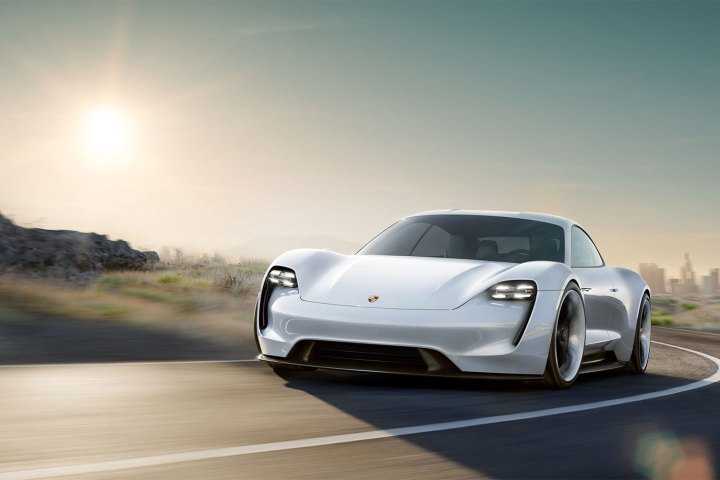
The process of making a new car involves a constant tug-of-war between designers who want to create sleek new shapes, and engineers who need to figure out how to package the powertrain, electronics, and airbags — not to mention people — within those shapes. That leads to some odd solutions. For example, the upcoming Porsche Taycan (pronounced “tie-con”) electric car features something called “foot garages.”
These foot garages were mentioned by Porsche head of style Michael Mauer in an interview published by the company. Mauer said designers wanted to place passengers as low as possible in the car, to lower the center of gravity and improve handling. But the Taycan’s battery pack, which is mounted under the floor of the passenger compartment, presented a problem.
“The specific challenge was to position the passengers as low as possible without them having to assume a reclined position like in a Formula One racing car,” Mauer said. “We solved this with so-called ‘foot garages.'”
The “garages” don’t come with their own roll-up doors. They’re indentations in the floor of the car (and thus the battery pack) near the rear footwells that effectively lower the floor where passengers place their feet. Mauer said this was all about lowering the Taycan’s center of gravity. But car website Jalopnik noted that, because the front seats don’t get their own “foot garages,” this may have also been an attempt to gain more rear-seat headroom by lowering the rear seats. If the production Taycan has the same sloping roofline as Porsche’s original Mission E concept (pictured above), rear-seat headroom will be at a premium.
The Taycan will be Porsche’s first production electric car. In its most potent form, the sedan will have 600 horsepower, and will do 0 to 60 mph in 3.5 seconds. Maximum range is forecast at around 300 miles, and Porsche is developing a 350-kilowatt, 800-volt charging system that will reportedly enable an 80-percent charge in 20 minutes.
The Taycan’s basic underpinnings are expected to form the basis for the upcoming Audi E-Tron GT as well. Following the Taycan, Porsche will launch an all-electric version of its Macan crossover. Volkswagen, the parent company of both Porsche and Audi, is pushing for more electric cars. VW hopes to be building 1 million of them per year by 2025.


